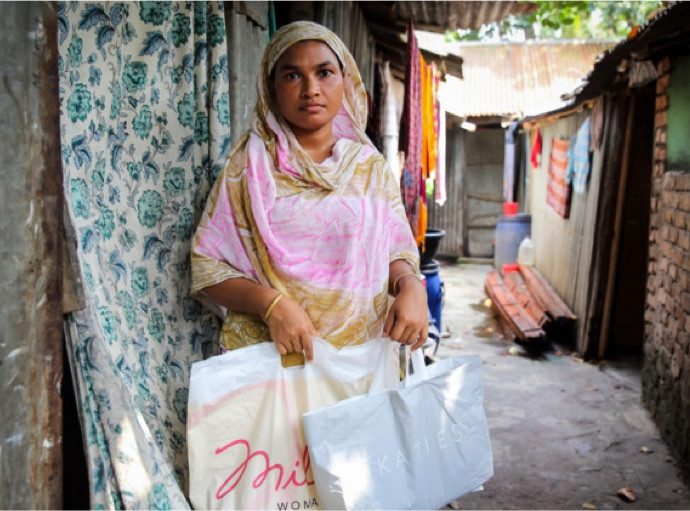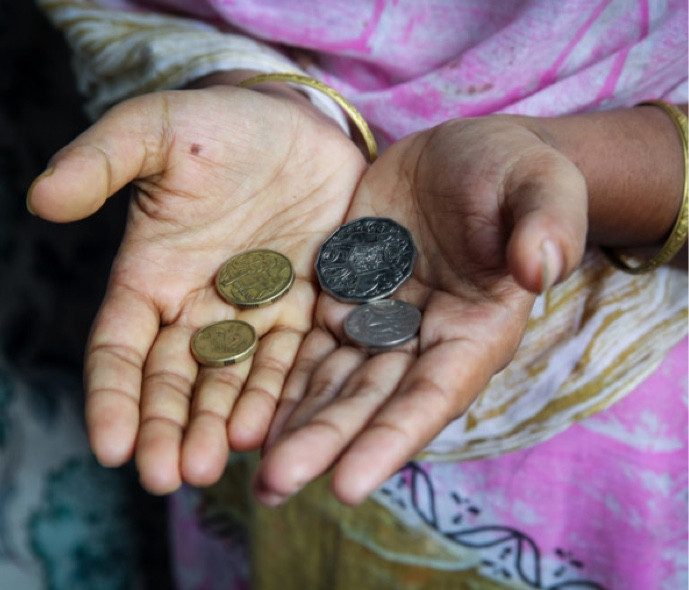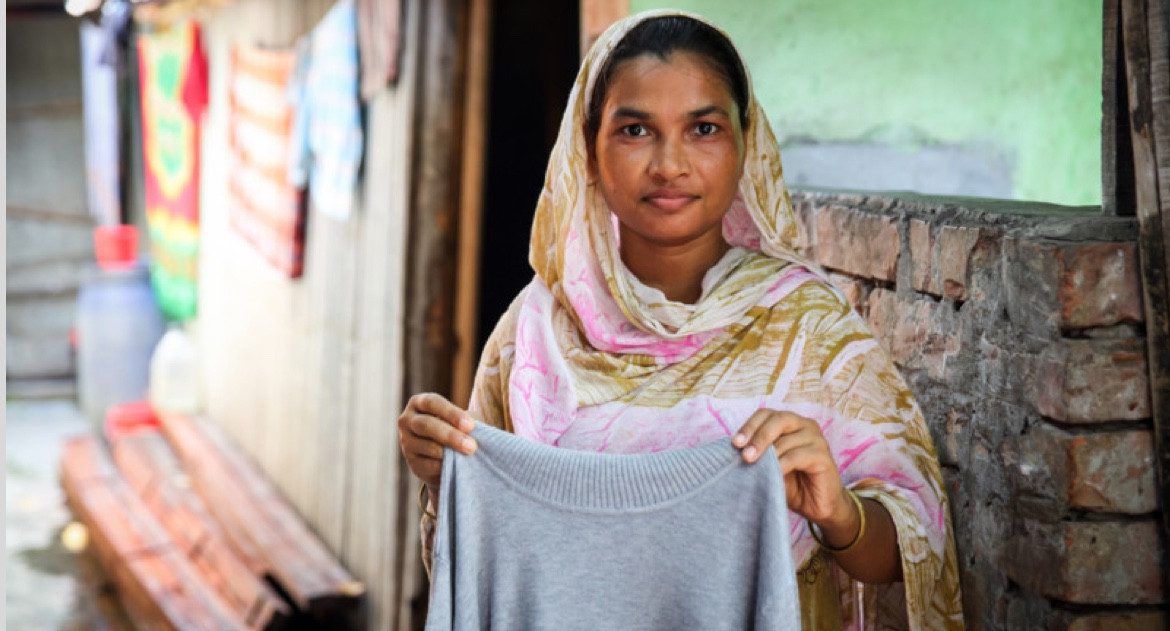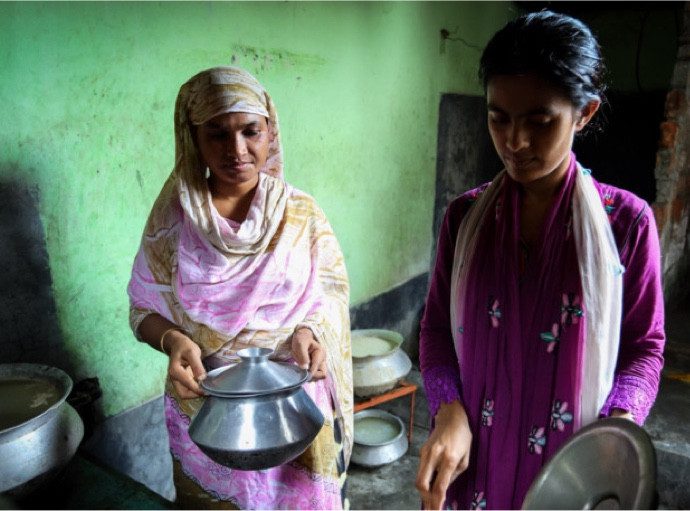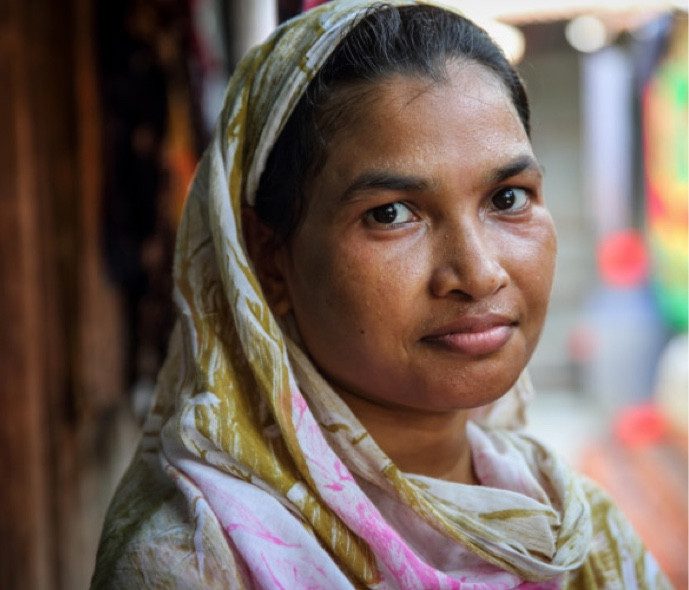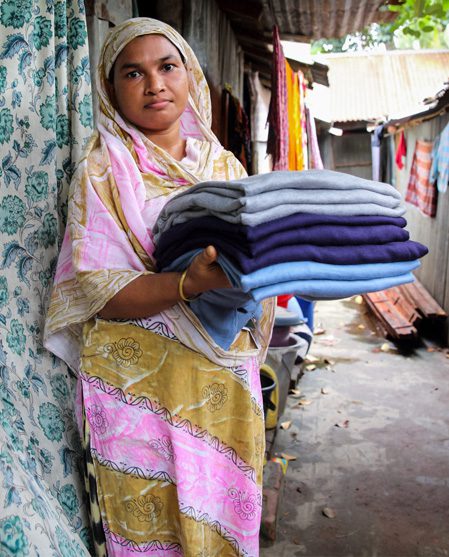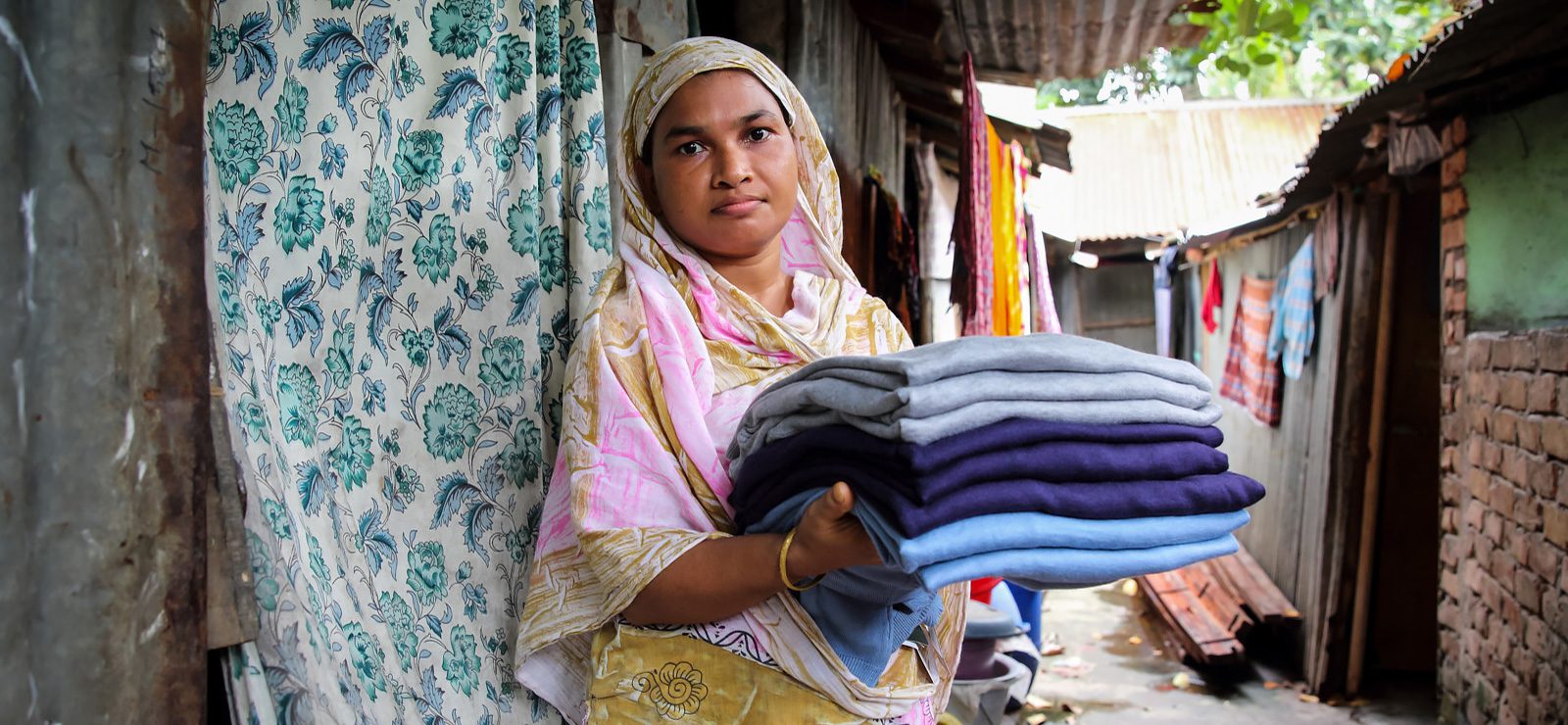Anju’s story
Like the millions of women working in factories for international brands, Anju is paid poverty wages.
She says: “I share my room with two other garment workers… three people in one room… We don’t have a bed, I sleep on the floor.”
Anju holds her daily wage. She is paid only 37 cents [in 2018] an hour to make our clothes.
Her wages are less than the minimum wage in Bangladesh – deductions are made at the factory when she gets behind on her steep target.
Her wages are less than the minimum wage in Bangladesh – deductions are made at the factory when she gets behind on her steep target.
Anju only sees her daughters, Munia, 10 and Ginia, 8 twice per year. They live in her home village with their grandparents. Anju feels really bad that her children aren’t with her.
Anju holds her daily wage. She is paid only 37 cents [in 2018] an hour to make our clothes.
“If I had a better wage, I could have my daughters near me. I could keep them here and take them out to visit places; take them out for a day.”
